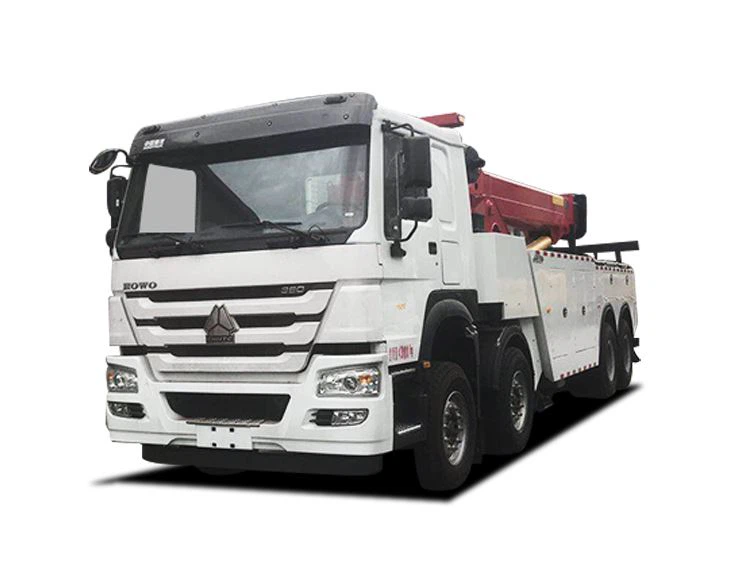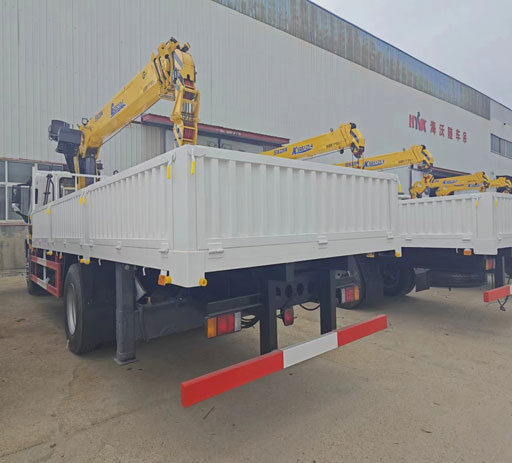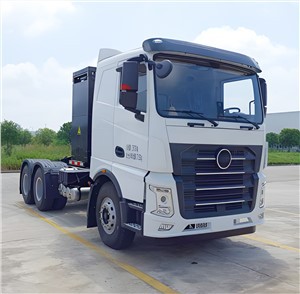Everything You Need to Know About Used Refuse Trucks

Introduction
Used refuse trucks play an essential role in waste management and sanitation services. These specialized vehicles are crucial for the efficient collection and transportation of refuse, recycling, and other waste materials. As more cities and municipalities continue to seek sustainable waste management solutions, the demand for used refuse trucks has grown steadily. This article will explore various aspects of used refuse trucks, including their types, benefits, purchasing considerations, maintenance tips, and more. Whether you’re a municipal officer, a waste management contractor, or just someone interested in the waste management industry, this guide will provide comprehensive insights into the world of used refuse trucks.
Types of Used Refuse Trucks
Front Loader Trucks
Front loader trucks are designed for collecting large volumes of commercial waste. They usually come with hydraulic arms that can lift dumpsters and empty them into the truck’s container. These trucks are widely used in urban areas for their efficiency and ability to handle heavy loads.
Rear Loader Trucks
Rear loader trucks are typically employed for residential waste collection. The waste is manually deposited into the back of the truck, which utilizes a compacting system to maximize space. These trucks are user-friendly and often favored in neighborhoods with limited space.
Side Loader Trucks
Side loader trucks move the waste from the side of the vehicle. They can be equipped with automated arms for efficient collection, making them particularly popular for residential routes. Side loaders are efficient for areas with frequent pickups.
Roll-Off Trucks
Roll-off trucks are ideal for large or bulk waste disposal. They feature a flatbed that can accommodate large containers, commonly used at construction sites or during major renovations. Roll-off trucks are versatile, able to haul and transport a variety of waste materials.
The Benefits of Purchasing Used Refuse Trucks
Cost-Effectiveness
One of the primary reasons for purchasing used refuse trucks is cost savings. New trucks can be prohibitively expensive, whereas used options provide significant savings without sacrificing functionality.
Immediate Availability
Used refuse trucks are often readily available, allowing for quicker procurement. This is a crucial advantage for municipalities looking to enhance their waste management efforts without long wait times.
Variety of Choices
The market for used refuse trucks offers a diverse selection in terms of brands, sizes, and specifications. This variety allows buyers to choose a truck that best suits their operational needs.
Proven Reliability
Many used refuse trucks come with maintenance records that demonstrate their reliability and performance over time. A reliable used truck can be just as effective as a new one, especially if it has been well-maintained.
Factors to Consider When Buying Used Refuse Trucks
Condition and Maintenance History
Before purchasing, it’s crucial to assess the truck’s physical condition and review its maintenance history. A well-maintained truck will generally offer better performance and a longer life span.
Mileage and Age
Analytics around mileage can give insights into how heavily the truck has been used. Generally, lower mileage translates to less wear and tear, making it a more viable option.
Brand Reputation
Investing in a truck from a reputable manufacturer can be beneficial. Brands known for durability and performance often translate into better operational efficiency and lower maintenance costs.
Financing Options
Understanding financing options is essential. Many dealers offer financing plans that can make purchasing easier. Be sure to evaluate interest rates, terms, and down payments required.
Maintenance Tips for Used Refuse Trucks
Regular Inspections
Regular inspections help identify potential issues before they become significant problems. Key components to check include brakes, hydraulics, and tires.
Oil Changes
Regular oil changes are crucial for the longevity of the engine. Follow the manufacturer’s guidelines for oil change intervals to keep the engine running smoothly.
Cleaning and Hygiene
Regular cleaning of refuse trucks is essential. In addition to aesthetic benefits, proper cleaning helps prevent odors and bacterial growth.
Training for Operators
Proper operator training is critical. Ensuring that the team understands the operational mechanisms can prolong the truck’s life and enhance safety.
Practical Tips for Operating Used Refuse Trucks
Route Planning
Effective route planning can save fuel and time. Utilize GPS technology for real-time traffic updates and more efficient routing.

Load Management
Understanding load distribution is vital to prevent overloading, which can decrease truck performance and lead to accidents.
Safety Protocols
Implementing strict safety protocols ensures the safety of both operators and the public. Regular training refreshers on safety can mitigate risks.
Where to Purchase Used Refuse Trucks
Dealerships
Established dealerships often have a selection of used refuse trucks. They usually offer warranties and certified pre-owned vehicles that have undergone inspections.
Auction Sites
Online auction sites can provide great deals on used refuse trucks. However, it’s essential to conduct a thorough inspection before bidding.
Direct Sellers
Municipalities and companies often sell their used refuse trucks directly. This can lead to significant savings, as auctions and dealerships often come with a markup.
Repurposed Truck Dealers
Some businesses specialize in repurposing old trucks into refuse trucks. They may offer unique modifications and better features than standard options.
Frequently Asked Questions (FAQ)
What is the average lifespan of a used refuse truck?
The average lifespan of a used refuse truck ranges from 10 to 15 years, depending on usage and maintenance practices.

How can I find the right size refuse truck for my needs?
Choosing the right size involves assessing the volume of waste you need to collect and the routes you will be covering. Consulting with waste management professionals can provide guidance.

What features should I look for in a used refuse truck?
Look for features such as load capacity, compaction system, type of loading mechanism (e.g., rear, front, side), and fuel efficiency.
Can I finance a used refuse truck?
Yes, many dealers and financial institutions offer financing options for used refuse trucks. Be sure to shop around for the best terms and rates.
What is the best time to buy a used refuse truck?
The best time to buy is often at the end of the fiscal year when municipalities sell off older models, or during seasonal sales events.
How often should I have my refuse truck serviced?
Regular servicing is recommended every 5000 to 10,000 miles, or as per the manufacturer’s guidelines to keep it in optimal condition.
